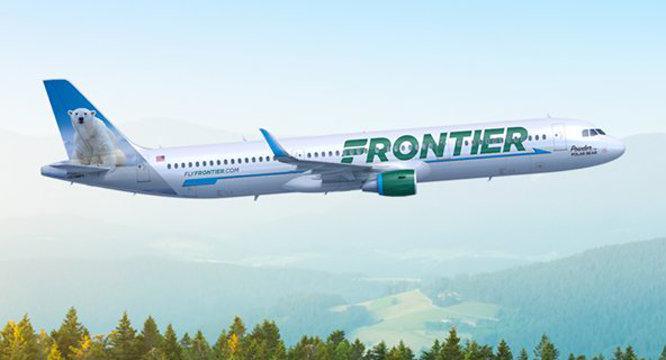More U.S. Carriers Mandate Passengers Wear Face Masks In The Cabin

WASHINGTON—Three more U.S. carriers announced plans to require all passengers wear face coverings in the cabin, as calls in the U.S. Congress for a national policy gathered steam in light of the continued COVID-19 pandemic.
American Airlines, Delta Air Lines and Denver-based ULCC Frontier Airlines each announced plans to require all passengers wear a mask or face covering while boarding, and in the cabin, beginning in May. Delta’s policy goes into effect first on May 4, followed by Frontier on May 8 and American on May 11.
The moves come after JetBlue Airways became the first U.S. carrier to mandate mask wearing in the cabin earlier this week. Other carriers, like Southwest Airlines and United Airlines, have enacted policies requiring their crewmembers to wear masks, but have so far stopped short of doing the same for passengers.
The focus on masks comes as pressure builds in Congress for a national policy to address public concerns about the safety of air travel. Rep. Peter DeFazio (D-Oregon), chairman of the U.S. House Transportation Committee, recently joined the chorus of voices on Capitol Hill urging FAA Administrator Steve Dickson to implement a nationwide mandate for masks aboard aircraft.
“I believe these measures are not only well within the FAA’s jurisdiction, but are also essential to protect frontline airline employees as well as the members of the flying public who still must travel during the pandemic,” DeFazio said in a statement.
In the U.S. Senate, Sen. Edward Markey (D-Massachusetts) and Sen. Richard Blumenthal (D-Connecticut), both members of the Senate Commerce, Science and Transportation Committee, wrote to the departments of Transportation (DOT) and Health and Human Services (HHS) on April 29, urging that face coverings be mandatory for “all individuals engaged in air travel” throughout the duration of the coronavirus crisis.
“In the absence of federal action, different airlines and airports have adopted conflicting policies that will undermine overall public health if they are not unified around a single, strong standard,” the senators wrote to Transportation Secretary Elaine Chao and HHS Secretary Alex Azar. “A patchwork of rules simply cannot address the interconnected and widespread health risks of a global pandemic.”
The FAA has issued guidance that points to other agency policy, including CDC recommendations, for preventing COVID-19’s spread on and around aircraft. The Air Line Pilots Association (ALPA) has been among the most vocal critics calling for the FAA to mandate CDC guidance, which is voluntary. ALPA cites the FAA’s 2006 declaration that it is a “public health authority” and can therefore issue rules that cover aviation industry-specific issues, including wearing masks.
But the agency’s declaration applies specifically to medical data covered in a 2000 Health and Human Services rule that the FAA needed for aviation safety research—not broad, rulemaking applications. The agency does not, for example, mandate protective gear for mechanics in repair stations—such issues fall under the U.S. Occupational Safety and Health Administration.
But the urgency of protecting workers and passengers from COVID-19 has ALPA and others calling for agencies to ignore potential turf battles and regulate their constituencies.
“We are in the middle of a global public-health crisis, and the FAA appears to be unwilling or unable to find the fortitude to direct the airlines to take all CDC-recommended steps to protect essential employees and do what needs to be done to keep crews and passengers from getting sick and dying,” ALPA president Joe DePete said. “The FAA must not delegate its authority to airlines and hope that they do the right thing.”






